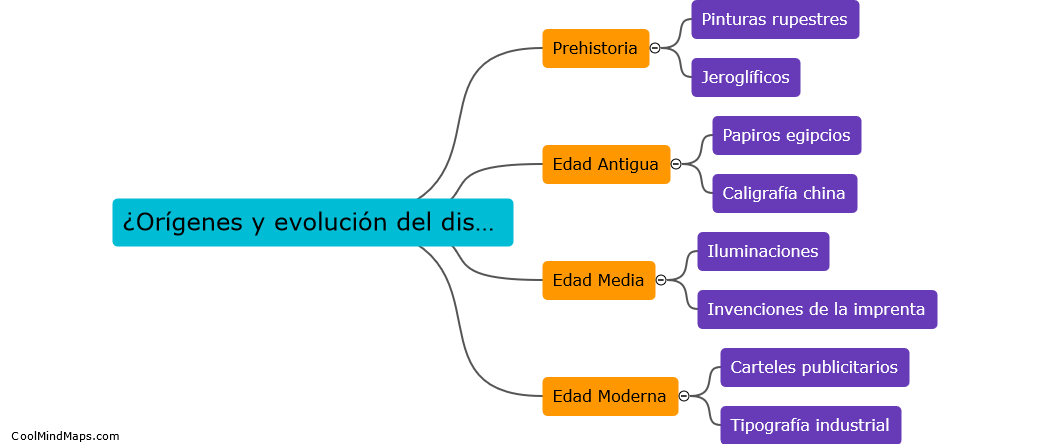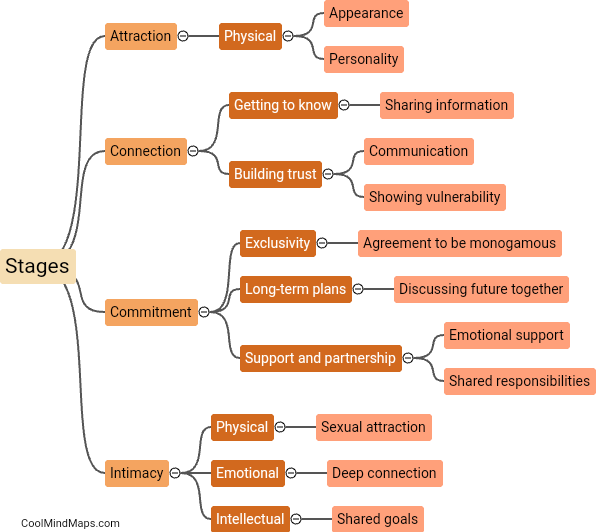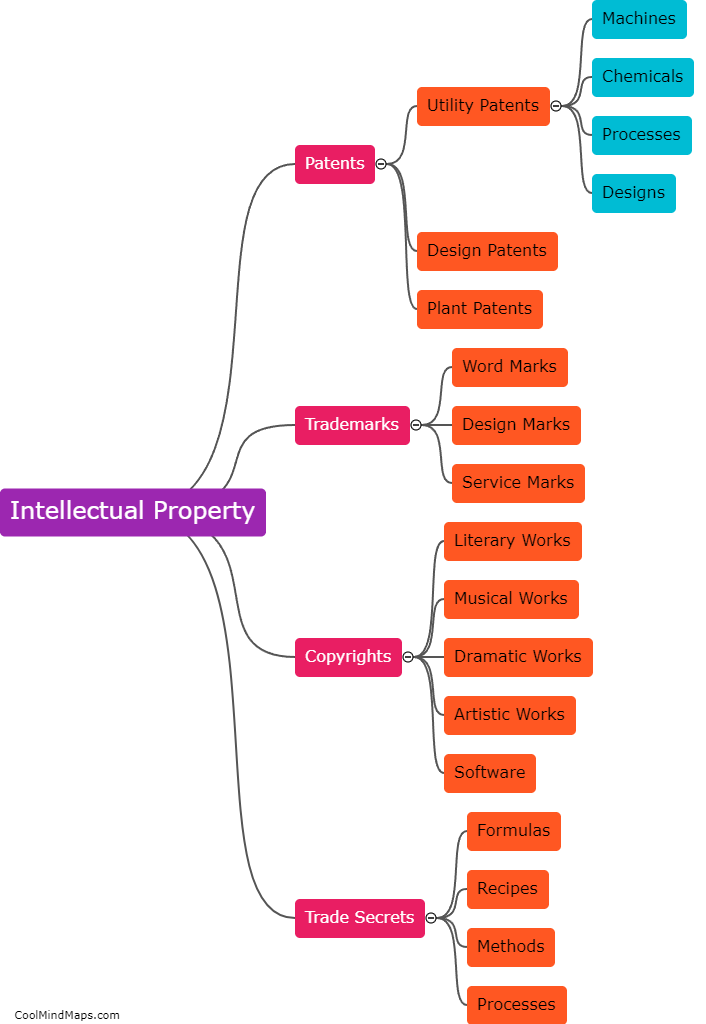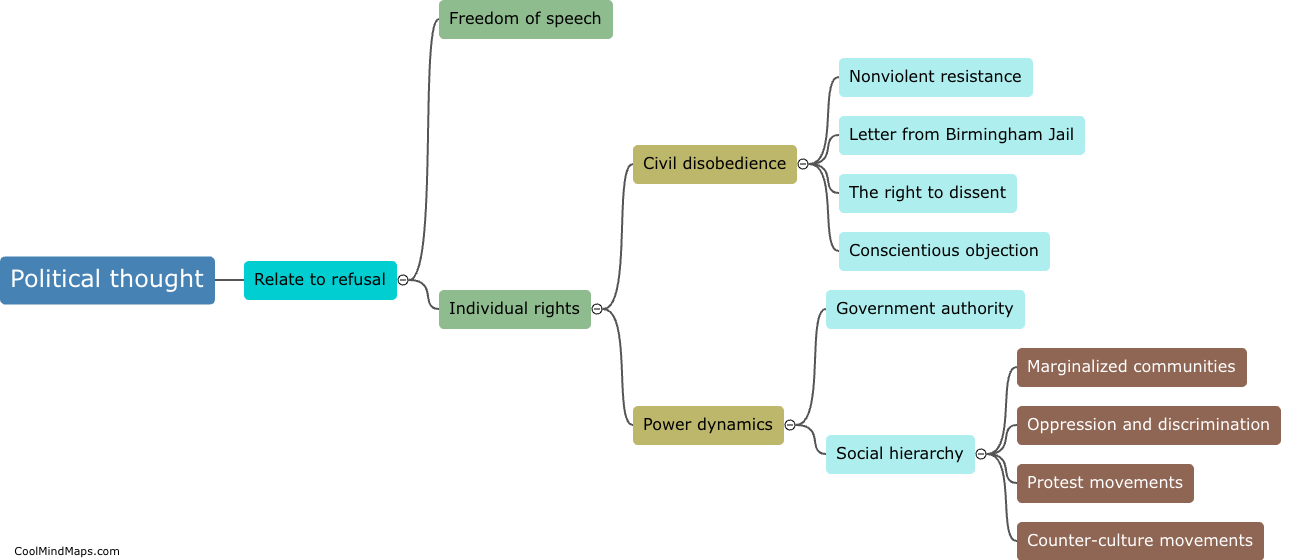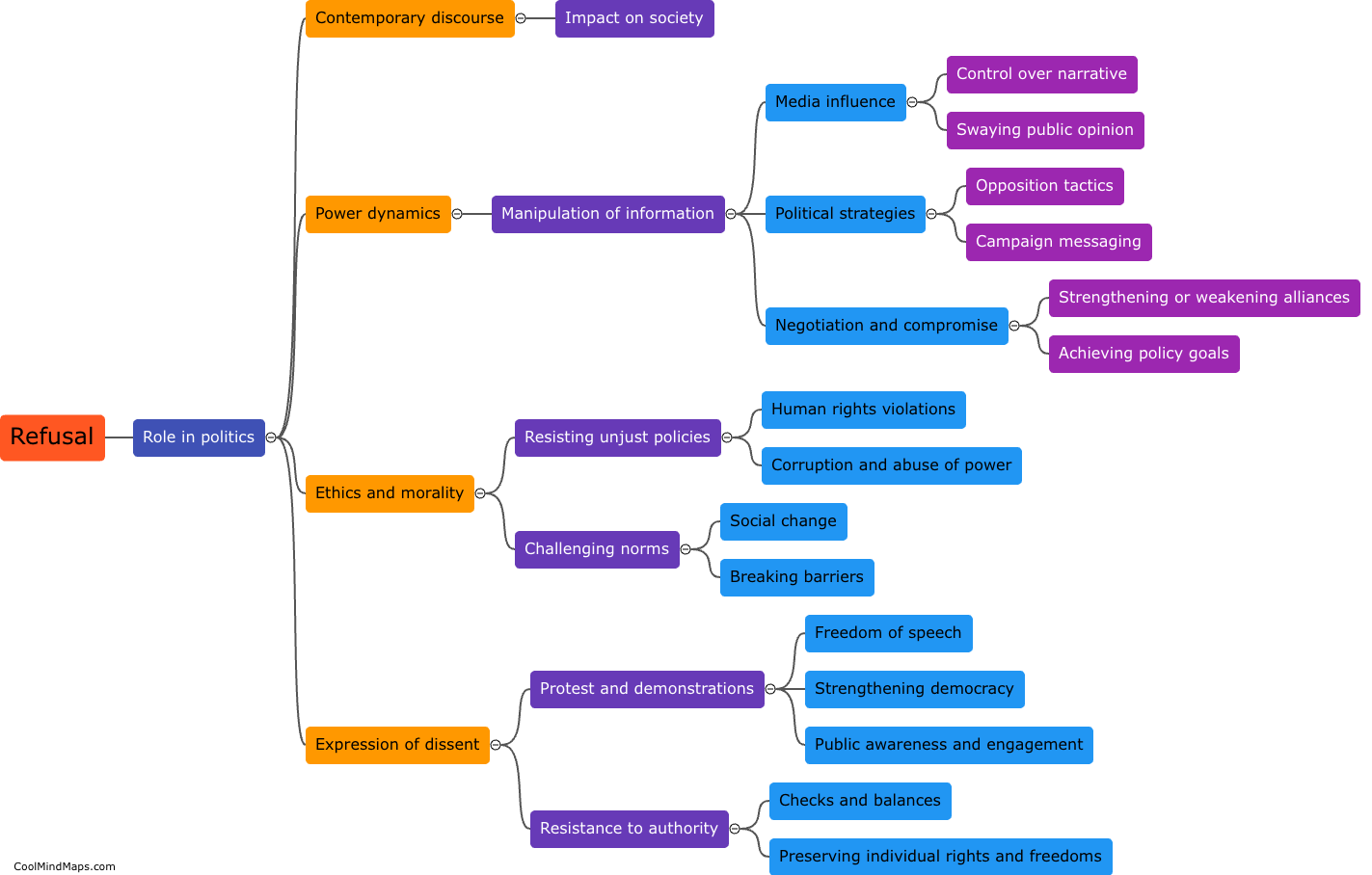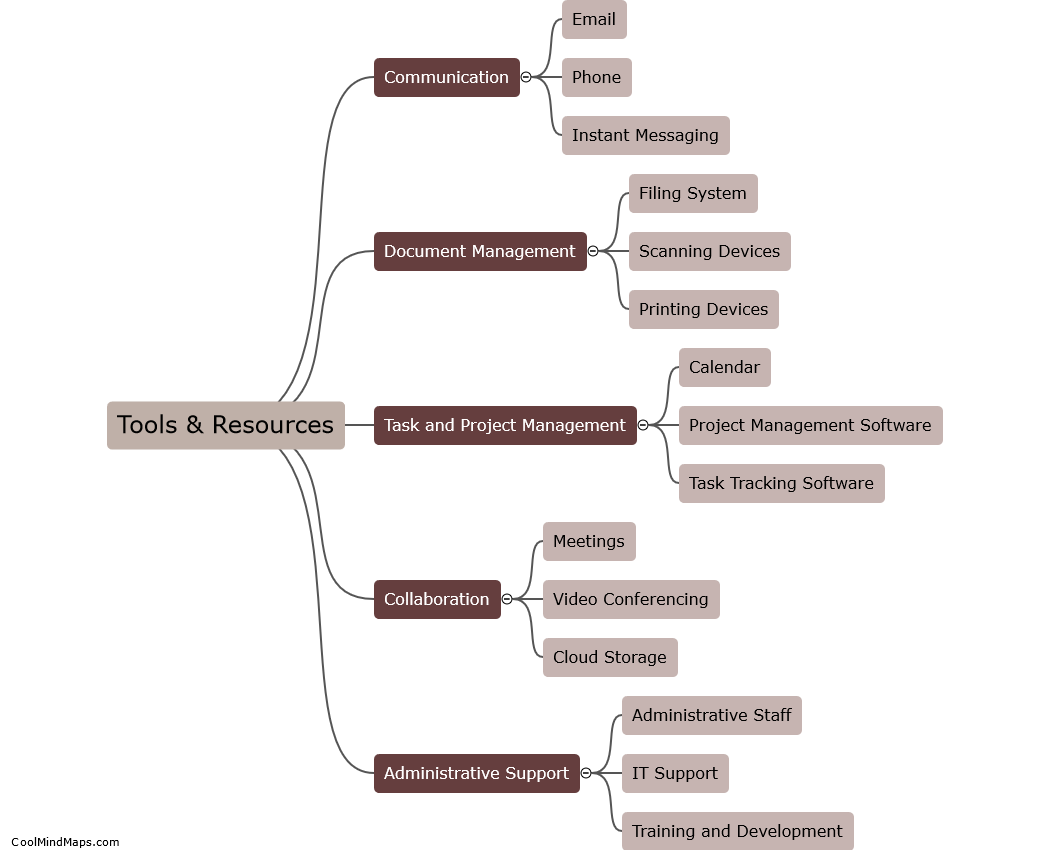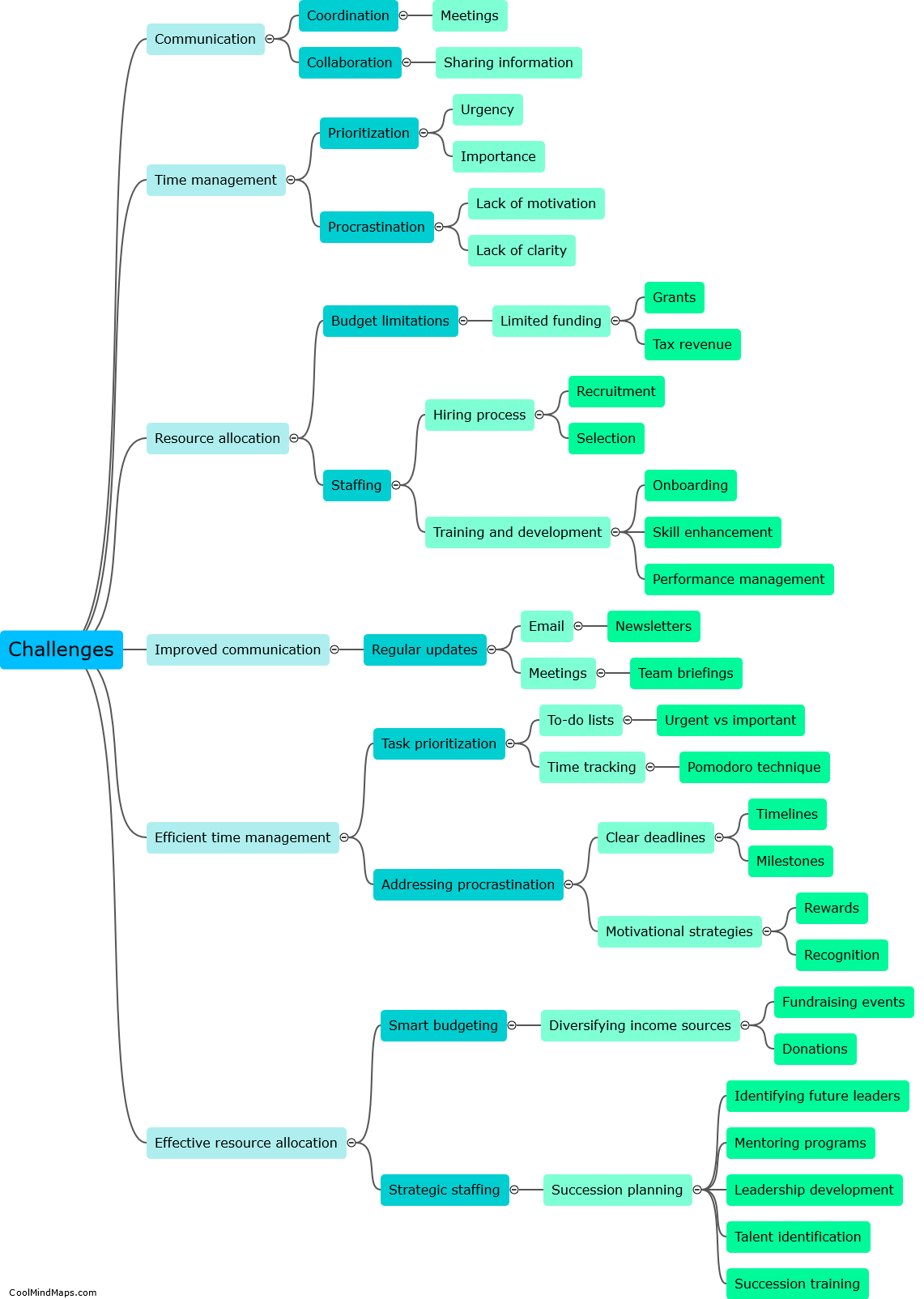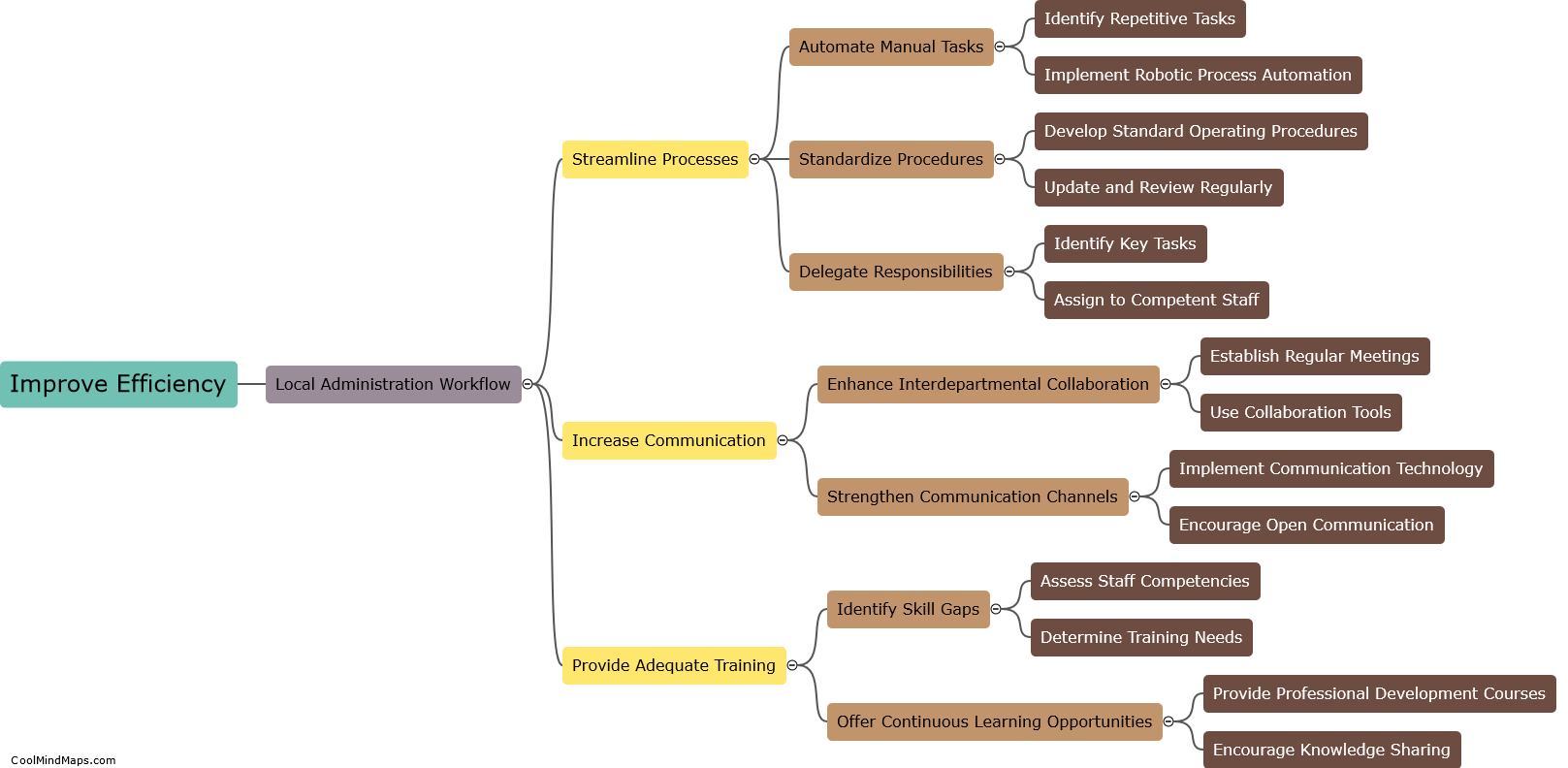How does refusal shape political ideologies?
Refusal plays a significant role in shaping political ideologies as it reflects an individual or group's stance against a particular idea, event, or policy. When people refuse to accept certain political ideologies or proposals, it often leads to the formation of alternative ideas and beliefs. Refusal can stem from disagreement with existing norms, values, or practices, or it can arise due to the perception of injustice, inequality, or the violation of fundamental rights. In either case, refusal often fuels a deeper engagement with political thought, sparking discussions and debates that may result in the development of new ideologies or the modification of existing ones. Through refusal, individuals and communities actively challenge the status quo and advocate for change, contributing to the evolution and diversification of political ideologies over time.

This mind map was published on 11 December 2023 and has been viewed 99 times.
